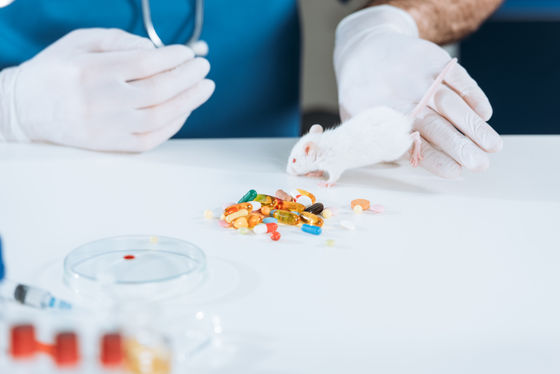It turns out that reducing the intake of the essential amino acid 'isoleucine' can extend lifespan

Nutrient deficiencies are a major enemy of maintaining health and longevity, and in particular essential amino acids, which cannot be synthesized in the body, are nutrients that humans literally need to survive. Experiments on mice have shown that restricting the intake of
Dietary restriction of isoleucine increases healthspan and lifespan of genetically heterogeneous mice: Cell Metabolism
https://www.cell.com/cell-metabolism/fulltext/S1550-4131(23)00374-1
Cutting Back on One Amino Acid Increases Lifespan of Middle-Aged Mice Up to 33% : ScienceAlert
https://www.sciencealert.com/cutting-back-on-one-amino-acid-increases-lifespan-of-middle-aged-mice-up-to-33
Isoleucine is one of the three branched chain amino acids (BCAAs) that are particularly important for protein synthesis, and is an essential amino acid that cannot be produced by the body. Therefore, humans cannot maintain their bodies unless they ingest isoleucine from eggs, dairy products, soybeans, meat, etc.
However, I have gradually come to realize that just because it is necessary does not mean that you should consume large amounts. For example, a study published in 2021 found that people with a higher BMI tend to consume more amino acids, and that the amount of isoleucine in the diet is associated with metabolic health. Masu.

Based on previous research, Dr. Dudley W. Lamming of the University of Wisconsin in the United States hypothesized that there may be a relationship between certain amino acids and a healthy lifespan. We conducted an experiment in which the amount of food was controlled.
The experiments began when the mice were six months old, which would be about 30 years old in humans. The mice were divided into three groups, and the mice in each group were fed either a diet rich in amino acids, a diet with one third of the amino acids, or a diet with only one third of isoleucine. One type was given.
The ``amino acid-rich food'' contained 20 types of amino acids in a well-balanced manner, and the proportion of protein in calories was adjusted to 21% of the natural mouse diet. On the other hand, the ``feed with one third of the amino acids'' increased carbohydrates at the cost of cutting amino acids by 67%. In addition, in the ``feed containing only one third of isoleucine,'' other types of amino acids were added in place of the reduced isoleucine. The fat content and total calories were the same for all three types, and the mice in each group were able to eat as much of their assigned type of food as they wanted.
When mice were fed three types of diets, they found that isoleucine-restricted mice had longer lifespans and healthspans, stronger bodies, less weight and fat, and improved glucose homeostasis, or blood sugar control. I did. Specifically, isoleucine-restricted male mice had a 33% longer lifespan than unrestricted mice, and females had a 7% longer lifespan.

Mice fed the isoleucine-restricted diet also had better scores on 26 other health indicators, including muscle strength, endurance, tail usage, and coat texture. Male mice also had a lower incidence of age-related prostate enlargement and were less likely to develop cancerous tumors, which are common in mice of various breeds.
Interestingly, mice in the low isoleucine group ingested more calories than other mice, but expended more calories than mice in other groups, even though there was no difference in activity. As a result, she was able to maintain her reduced weight.
The research team believes that limiting isoleucine may have similar anti-aging effects not only in mice but also in humans. However, unlike mice, which can be raised on only one type of food, humans have a diverse diet, so it is difficult to create a diet that only reduces isoleucine. Additionally, nutrients other than isoleucine may well be related to longevity, and a lack of protein is generally bad for the body, so there's no need to just skip protein-rich foods.
'We can't switch all of people's diets to a low-isoleucine diet, but if we can narrow down the nutrients associated with longevity benefits to a single amino acid, we can improve our understanding of biological processes and find that isoleucine inhibits It will also be possible to apply this to human treatments such as medicine.'
Related Posts:







